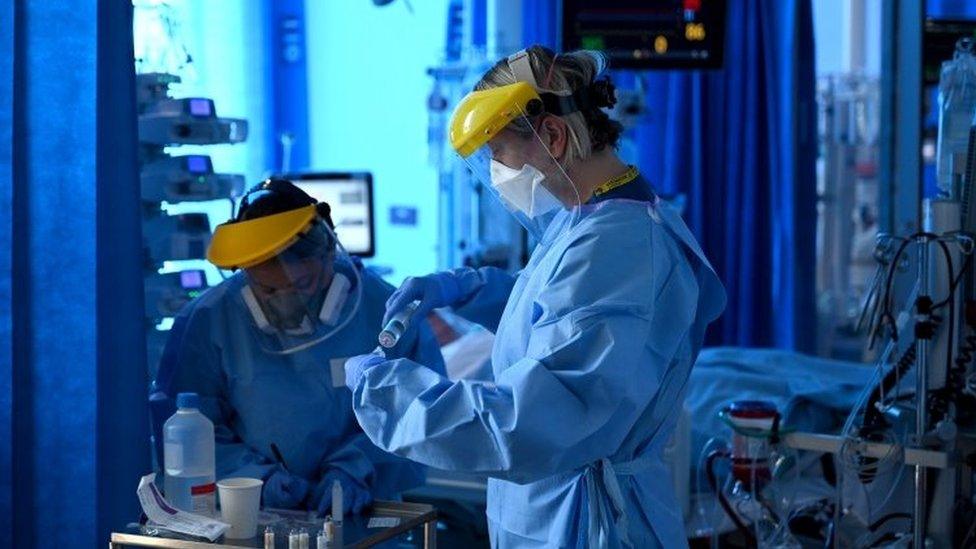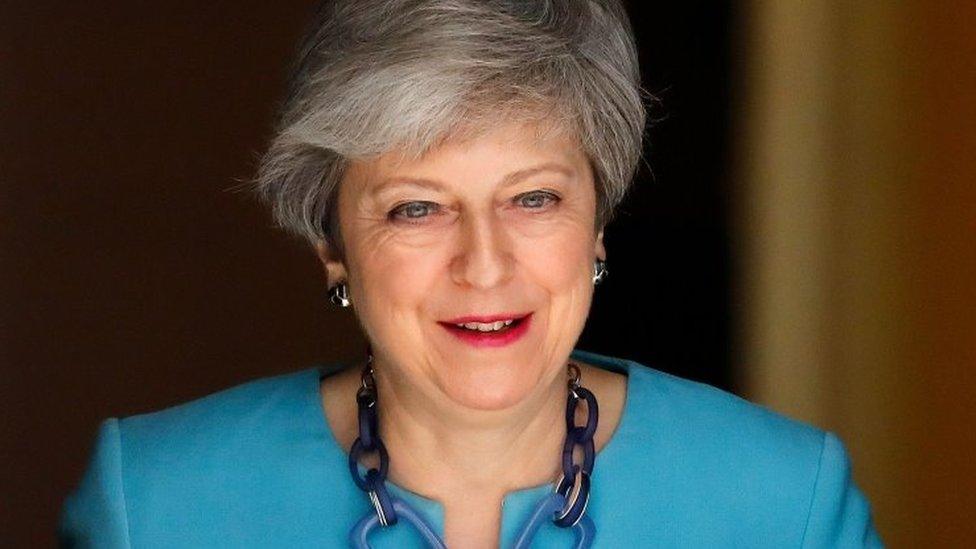Coronavirus: Theresa May criticises world pandemic response
- Published
- comments

Former Prime Minister Theresa May has criticised world leaders for failing "to forge a coherent international response" to the coronavirus pandemic.
Writing in the Times, external, she said states had "gone their own way" and treated the virus as a "national issue".
Lack of international collaboration could lead to the world becoming more dangerous, she warned.
A No 10 source said there had been "extensive co-operation", with the PM talking regularly to other G7 leaders.
Mrs May's intervention comes as Boris Johnson and Sir Keir Starmer face each other at Prime Minister's Questions for the first time later.
They are also due to hold talks on the coronavirus crisis after the UK's death toll became the highest in Europe.
A total of 29,427 people have died in the UK - passing Italy's death toll of 29,315. But experts have said it could be months before full global comparisons can be made.
In the Times, Mrs May wrote: "The global impact of Covid-19, and our inability to forge a coherent international response to it, have raised new questions about the effectiveness of a system of cooperation through shared institutions."
She called on the government to "embrace its wider international role beyond the day to day of the pandemic" and not shy away from our "responsibilities on the world stage".
She said the virus had been "treated as a national issue for countries to deal with alone" and while researchers and scientists may work together, there was "little evidence of politicians doing so".
'No collective view'
"Governments are faced with an enormous challenge, and it is no surprise that they see as their first job the immediate protection of their own citizens," she said.
"But there remains no collective international view as to what works best in dealing with the virus - nor does there seem to have been any attempt to form one. Instead, states have each gone their own way."
Mrs May said this "risks exacerbating the shift towards nationalism and absolutism in global politics".
"A world in which a few 'strong men' square up to each other and expect everyone else to choose between them would be a dangerous one," she said.
She said the international community still had to work with China, despite concerns within her party that Beijing has suppressed information and tried to exploit the pandemic - which began in Wuhan - to further its interests.
While China should face questions over its response, she said scrutiny should not become a fault line in international relations.

The former prime minister warned about nationalism and absolutism in global politics
The UK's international efforts have been focused on the mission to find a coronavirus vaccine, Boris Johnson describing it as "the most urgent endeavour of our lives".
Earlier this week, the PM co-hosted an international conference to try and raise more than £6bn towards the global response, although the US, Russia and India declined to take part.
The UK has pledged to give £388m in aid funding for research into tests, treatments and vaccines - part of a £744m commitment to help end the pandemic and support the global economy.
The prime minister is expected to reveal a "road map" out of the UK's lockdown on Sunday. Social distancing measures have been in place in the UK since 23 March in a bid to limit the effects of the virus's spread on the NHS.
Meanwhile, Tory MP Ranil Jayawardena has been appointed international trade minister, after Conor Burns resigned from the role this week. Health minister Nadine Dorries has been promoted, to become a minister of state.